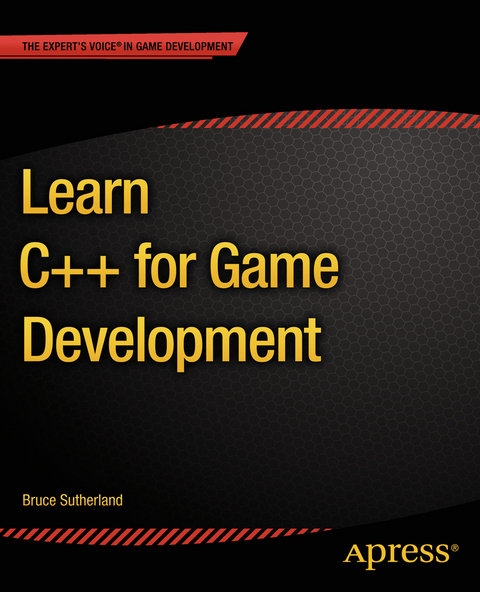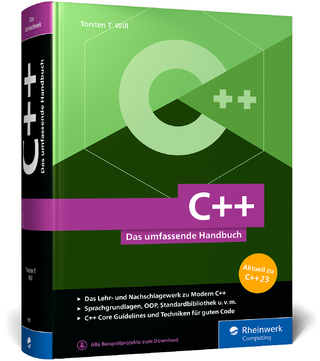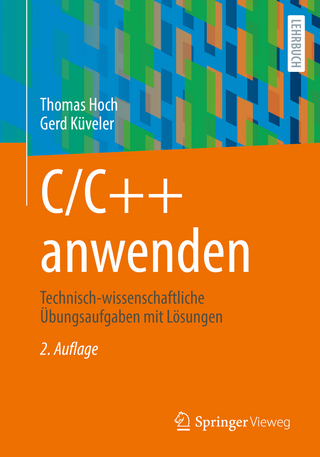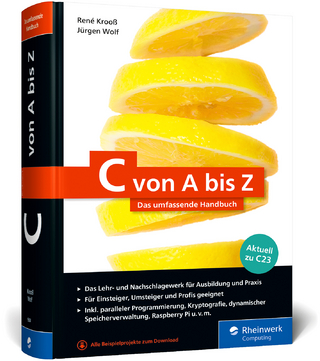
Learn C++ for Game Development
Apress (Verlag)
978-1-4302-6457-6 (ISBN)
Learn C++ for Game Development will show you how to:
Master C++ features such as variables, pointers, flow controls, functions, I/O, classes, exceptions, templates, and the Standard Template Library (STL)
Use design patterns to simplify your coding and make more powerful games
Manage memory efficiently to get the most out of your creativity
Load and save games using file I/O, so that your users are never disappointed
Most of today's popular console and PC game platforms use C++ in their SDKs. Even the Android NDK and now the iOS SDK allow for C++; so C++ is growing in use for today's mobile game apps. Game apps using C++ become much more robust, better looking, more dynamic, and better performing. After reading this book, you’ll have the skills to become a successful and profitable game app or applications developer in today’s increasingly competitive indie game marketplace.
The next stage is to take the foundation from this book and explore SDKs such as Android/Ouya, PlayStation, Wii, Nintendo DS, DirectX, Unity3D, and GameMaker Studio to make your career really take off.
Bruce Sutherland is a video game programmer hailing from Dundee, Scotland. He graduated with a Bsc (Hons) Computer Games Technology from the University of Abertay, Dundee in Scotland, graduating in 2005. After graduating he began his first job in the games industry at 4J Studios where he worked on Star Trek: Encounters (PS2), The Elder Scrolls IV: Oblivion (PS3), Star Trek: Conquest (PS2, Wii), Ducati Moto (NDS) and AMF Pinbusters! (NDS). In July 2008 he moved from Dundee to Melbourne Australia where he joined Visceral Studios and was a software engineer on Dead Space (Xbox 360, PS3, PC), The Godfather II (Xbox 360, PS3, PC) and Dead Space 3 (Xbox 360, PS3, PC). He developed an interest in developing for Android in his spare time and writes tutorials on his blog at http://brucesutherland.blogspot.com.
1. Beginning C++ Part 1: Procedural Programming 2. Writing a Guessing Game with C++ Types 3. Creating Calculators with Operators 4. Beginning C++ Game Development with Arrays 5. Functions, the Building Blocks of C++ 6. Making Decisions with Flow Control 7. Organizing Projects Using Files and Namespaces Part 2: Object Oriented Programming 8. Object-Oriented Programming with Classes 9. Controlling Data with Access Modifiers 10. Building Games with Inheritance 11. Designing Game Code with Polymorphism 12. Copying and Assigning Data to Objects Part 3: The Standard Template Library 13. The STL String Class 14. STL Array and Vector 15. STL List 16. STL's Associative Containers 17. STL's Stack and Queue 18. STL's Bitset 19. Using the STL in Text Adventure Part 4: Templates and Metaprogramming 20. Template Programming 21. Practical Template Programming Part 5: C++ Game Development 22. Managing Memory for Game Developers 23. Useful Design Patterns for Game Development 24. Using File IO to Save and Load Games 25. Speeding Up Games with Concurrent Programming 26. Supporting Multiple Platforms in C++ 27. Wrapping Up
| Zusatzinfo | 12 Illustrations, black and white; XVII, 324 p. 12 illus. |
|---|---|
| Verlagsort | Berlin |
| Sprache | englisch |
| Maße | 178 x 254 mm |
| Themenwelt | Informatik ► Programmiersprachen / -werkzeuge ► C / C++ |
| Informatik ► Software Entwicklung ► Objektorientierung | |
| Informatik ► Software Entwicklung ► Spieleprogrammierung | |
| Informatik ► Theorie / Studium ► Compilerbau | |
| Informatik ► Weitere Themen ► Computerspiele | |
| Schlagworte | Computerspiele (Programmierung/Entwicklung) • C++ (Programmiersprache); Spezielle Anwendungsbereiche |
| ISBN-10 | 1-4302-6457-8 / 1430264578 |
| ISBN-13 | 978-1-4302-6457-6 / 9781430264576 |
| Zustand | Neuware |
| Haben Sie eine Frage zum Produkt? |
aus dem Bereich


